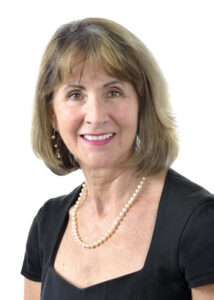Written by Isabelle Crépeau MLIS, Scientific Information Officer
Health Education for Culturally Diverse and Chronically Ill Vulnerable Populations

A team led by Dr. Sylvie Lambert studied the effectiveness of health education interventions adapted for culturally and linguistically diverse (CALD) populations living with a chronic illness. This topic is important because CALD groups face many barriers to accessing healthcare, which has resulted in significant health disparities. For example, CALD groups experience more chronic illness, depression, anxiety, and side effects than the general population. Health education interventions can improve illness management and slow disease progression. The issue for CALD patients is that they often cannot access these interventions because they are not fluent in the dominant language(s). Dr. Lambert’s team reviewed 58 studies. These showed that interventions were effective in reducing the body mass index (BMI), cholesterol, triglycerides, blood glucose, HbA1C (glycated hemoglobin), depression, and in increasing knowledge.
The analysis also showed that effectiveness is influenced partly by the provider of the intervention. Effectiveness was influenced partly by provider. Although health care professionals were favored over lay providers for increasing knowledge, interventions were more effective in reducing HbA1C when either a lay provider or a paraprofessional delivered the intervention as compared to a health care professional. They concluded that more research is needed to assess health effectiveness interventions effects on patient-reported outcomes (e.g., quality of life) for these vulnerable populations.
Telemedicine During the Pandemic

During the summer of 2020, Drs. Jeannie Haggerty and Alayne Adams put together a small-scale research project to study how telemedicine affects health care accessibility among vulnerable patients in Côte-des-Neiges. This initiative was in response to a group of physicians who expressed concern about vulnerable patients not visiting the St. Mary’s clinic during the pandemic. Data were collected primarily from clients of MultiCaf who came to get food baskets. The initial results demonstrated that patients tended to underestimate their health needs during the pandemic, had limited technological means—sometimes not even the ability to take a phone call—and preferred in-person consultations.
Dr. Haggerty’s team is also launching a navigation service at Clinique Indigo, a private clinic that focuses on patient-centered care. Volunteers will call vulnerable patients to assist them in navigating the healthcare system. This initiative will also help to test a new referral platform developed by computer engineering students; the platform allows professionals to refer patients directly to the navigation service and get feedback from volunteers.

